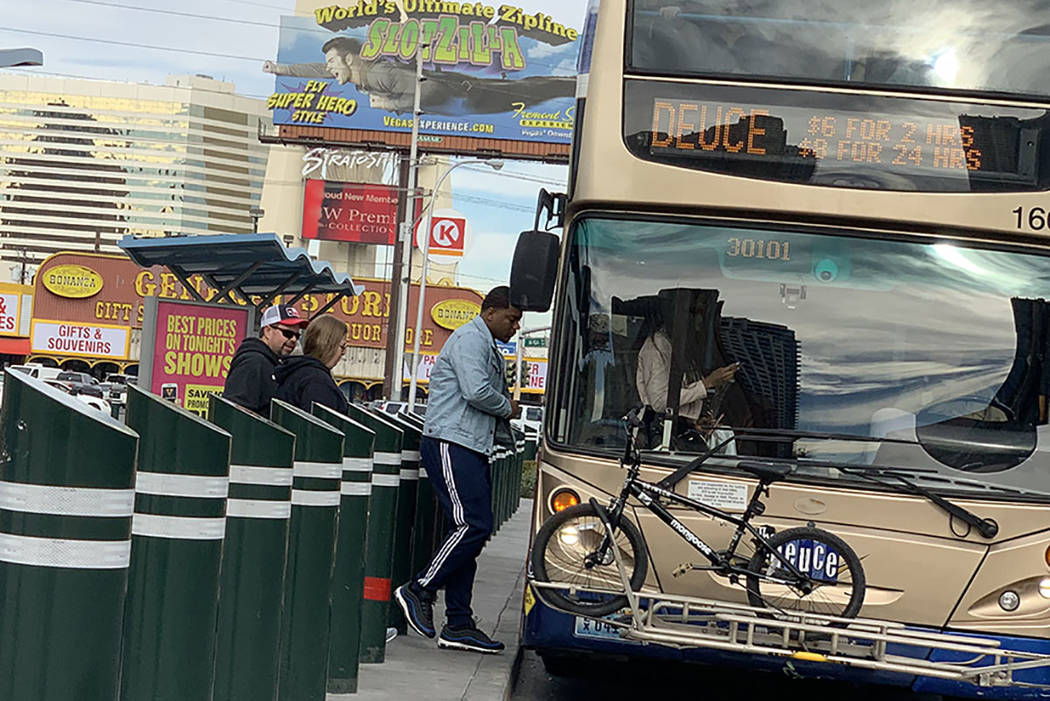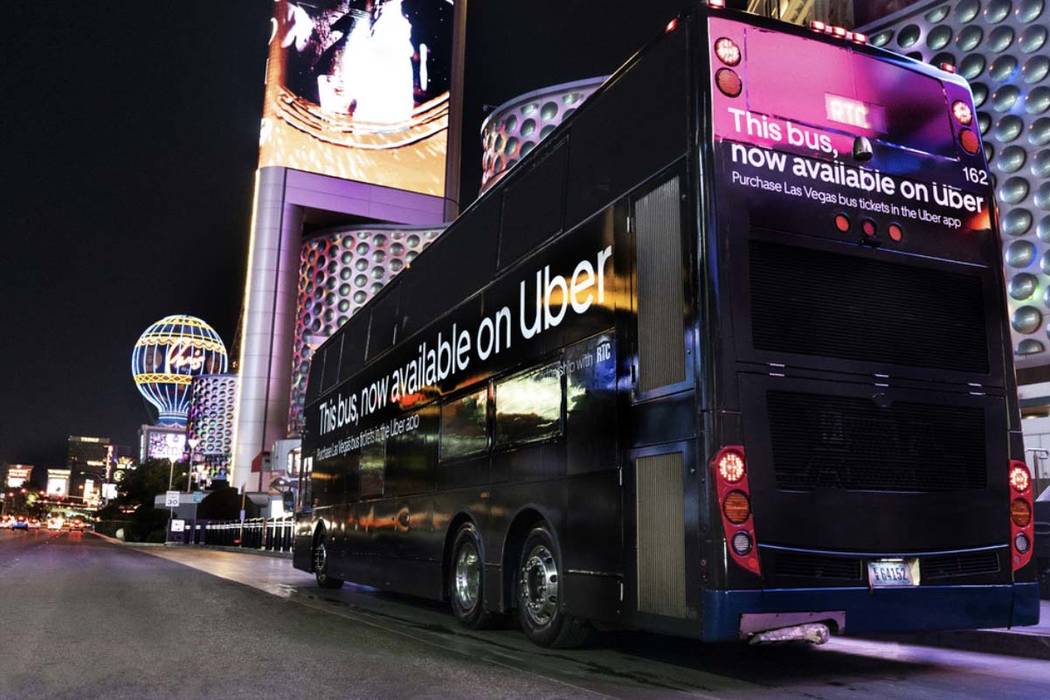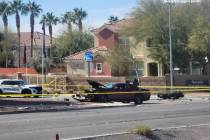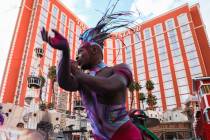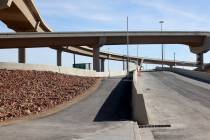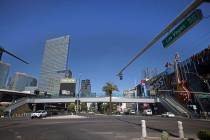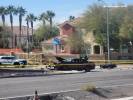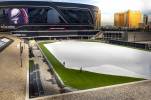RTC may see budget shortfall despite jump in Las Vegas ridership
Bucking the national trend, residential bus routes in Las Vegas saw an increase in ridership in 2019.
Residential ridership in 2019 was up 3.1 percent over 2018 with 54.5 million passenger trips on Regional Transportation of Southern Nevada buses, the transportation agency reported.
Systemwide, fixed-route ridership jumped 1.1 percent, with 65 million boarding last year.
That runs counter to recent data from the American Public Transportation Association, which shows a nearly 1 percent decline in bus ridership nationally.
“The RTC is one of only five transit agencies in the country that is experiencing an increase in residential ridership year over year, and according to the national transit database, we are the most efficient bus-only transit system in the country,” said MJ Maynard, RTC CEO. “We can attribute this growth to a number of factors, including the RTC’s investment in service improvements to make transit more frequent and convenient, a robust economy and strong population growth.”
Despite the good news overall, if you take out the Strip routes, which make up 17 percent of total ridership, the RTC saw an 8 percent decline in ridership in 2019.
Strip bus service generated $16.9 million in 2019, while residential service generated $47.6 million last year.
But operating costs tied to the residential route totaled $157.4 million last year and $19.4 million for the Strip routes.
The RTC has other revenue sources, including sales tax, grants and advertising, to offset the difference. As a result, the RTC saw combined operating revenue of $253.4 million with total operating costs — including services, salaries, supplies and other costs — of $239.5 million.
With the gap between revenue and operating costs closing over the past few years, the RTC expects to see a budget shortfall starting with the 2021 fiscal year, which begins in July.
What effect, if any, that will have on the On Board plan — the RTC’s mobility plan looking 20 years ahead — is still unknown. Planning for On Board is entering the final phase, as the RTC is expected to have the final plan done this year.
The RTC’s last forward-looking, long-term mobility plan was compiled in 2002, and all of the items on that plan were completed except for addressing the Maryland Parkway corridor.
Maryland Parkway is included in the new 20-year plan and will be one of the first major projects carried out as the planning process for a bus rapid transit line stretching from Russell Road to the Bonneville Transit Center downtown is under way. The RTC board voted against constructing a light rail option along that corridor last year.
Despite the likelihood of a budget shortfall, RTC is looking at those who ride the system as the catalyst for things to come in the future for the transit agency.
“Our riders are the foundation of our success,” Maynard said. “That’s why I am excited to express our appreciation for our longstanding customers and new riders who either just moved to our community or are trying transit for the first time. We appreciate your confidence in our service, and welcome your feedback on your riding experience and the future of transportation in Southern Nevada.”
I-15 Mesquite improvements
A stretch of Interstate 15 in Mesquite is set for a $9.1 million upgrade.
The planned project will improve a 5.3-mile stretch of I-15 from just south of West Mesquite Boulevard to the Arizona border at Mesquite, the Nevada Department of Transportation announced last week.
The six-month project calls for milling and placing new asphalt roadway in both directions along I-15 and repairing and resurfacing the freeway bridge decks at Exit 118 and Exit 120. Other upgrades entail placing new signage, drainage and lighting work. Las Vegas Paving is the general contractor on the project.
“This project will help preserve and extend the highway’s life cycle while also creating a smoother, safer traveling surface for motorists,” said NDOT spokesman Tony Illia.
Construction is expected to start during the second quarter of this year, with work occurring Monday through Friday during daytime hours. The project is projected to finish by late fall.
Send questions and comments to roadwarrior@reviewjournal.com. Please include your phone number. Follow @mickakers on Twitter.



